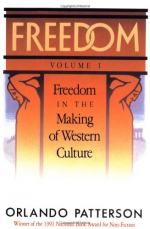
|
| Name: _________________________ | Period: ___________________ |
This quiz consists of 5 multiple choice and 5 short answer questions through Chapter 7.
Multiple Choice Questions
1. Since the slave master's financial welfare depended on the slave, what did he have to do?
(a) Find a way to motivate the slave to produce.
(b) Scare the slave into submission.
(c) Find a way to purchase more slaves.
(d) Trick the slave to produce.
2. What does the slave want?
(a) To be given work.
(b) To be loved.
(c) To be given the necessities of survival.
(d) To be free and an equal member of society.
3. Of what is Greek drama full?
(a) Strong women in small roles.
(b) Weak women in leading roles.
(c) Weak women in small roles.
(d) Strong women commanding leading roles.
4. Who does the slave in this culture have?
(a) His mother.
(b) The slave master.
(c) His family.
(d) His friends.
5. What would a slave in this culture not have that is necessary to protect and nurture him?
(a) The family and friendship structure.
(b) Rules.
(c) A slave master.
(d) Food and shelter.
Short Answer Questions
1. What delineates the fifth revolution of this period?
2. Why is freedom not practical for a slave during this period?
3. At the end of the war in 230 B.C., Athens establishes what, that brings their imperialism to an end?
4. These factors lead to the development of what kind of society?
5. There is a shift in agricultural production away from what into the production of olives, figs, fruits, etc.?
|
This section contains 298 words (approx. 1 page at 300 words per page) |

|




